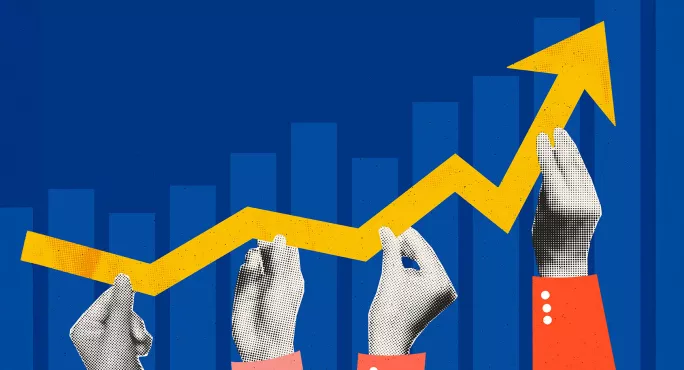The number of students entering GCSE statistics has almost doubled since 2021, the latest data reveals.
Some 35,175 students will sit GCSE statistics exams this summer - a 96 per cent increase since 2021, according to an analysis using recent data released by Ofqual.
GCSE statistics is the subject with the greatest percentage increase in take-up across all GCSEs and A levels over the past four four years.
The trend comes amid a surge in popularity for A-level maths, as well as warnings of a growing gap in maths attainment.
Sophie Carr, vice president for education and statistical literacy at the Royal Statistical Society, said it was “wonderful to see so many schools and students recognising the importance of statistics as a subject in its own right at GCSE”.
Statistics are “fundamental to interpreting the world around us” - from official government statistics to the effects of climate change, through to understanding emerging technologies like AI, she said.
GCSE statistics entries ‘still very small’
Professor Jane Clarke, chair of the Royal Society advisory committee on mathematics education, said that while the overall increase in entries is “encouraging” and shows that there is more recognition of the value of being able to understand data in daily life, the total entries were “still only a very small number”.
She said that all young people need access to these “crucial skills”.
Embedding statistics and data into the maths curriculum at all ages would be “more equitable”, Professor Clarke said, adding that she hoped the recommendations from the curriculum and assessment review would take this on board.
Professor Andy Noyes, founding director of the observatory for mathematical education at the University of Nottingham, agreed that while the increase in entries is “encouraging…there remains much to be done - whether in specific qualifications or across the curriculum - to improve statistical literacy”.
The number of entrants for GCSE statistics has grown each year since 2021 and was up by 9 per cent in 2025, from 32,210 in 2024.
The year group that provided the most entries for GCSE statistics was Year 11, with some 24,100. This was up 110 per cent from the 11,495 who entered the subject in 2021.
However, the groups that had the biggest increases in entrants were actually Year 9 and below and Year 12.
Although the numbers entering were comparatively tiny, 630 students in Year 9 and below entered GCSE statistics exams this summer, up from 80 entrants in 2021 and 150 last year.
Meanwhile, 410 Year 12 students entered this year, up from 195 in 2021.
The increase in entrants has come amid a marked increase in the popularity of maths at key stage 5 as successive governments have emphasised the importance of Stem subjects (science, technology, engineering and mathematics).
Last year A-level maths surpassed 100,000 entries - the first subject to do so - with more than 107,000 students taking the subject.
Growing maths divide
However, the Royal Society said maths “leaves too many behind” in a report published last year that called for the broadening of the scope of maths in the curriculum to include a combination of maths, statistics and data science, underpinned by computational tools.
Professor Noyes previously told Tes: “Very clearly, there is a gap between those who can do maths and those who can’t.”
Last year the proportion of students who did not achieve a grade 4 in maths at GCSE increased to 40.4 per cent, up from 33.6 per cent in 2020.
The number of entrants grew from 749,565 to 816,165 between 2020 and 2024.
A similar pattern has unfolded at A level. Between 2020 and 2024, the number of state school students who entered maths increased from 72,287 to 80,922, while the percentage achieving grades A* to C dropped from 84 per cent to 74.6 per cent.
Professor Noyes said: “Improving statistical and data education in our schools and colleges is a priority…Our reliance on data in all areas of life calls for educational change in this increasingly important area.”
Ms Carr added: “It is vitally important that we equip everyone in society to have the skills they need to ask questions of the data and algorithms we see in everyday life, and a great starting point is studying statistics.”
You can now get the UK’s most-trusted source of education news in a mobile app. Get Tes magazine on iOS and on Android





